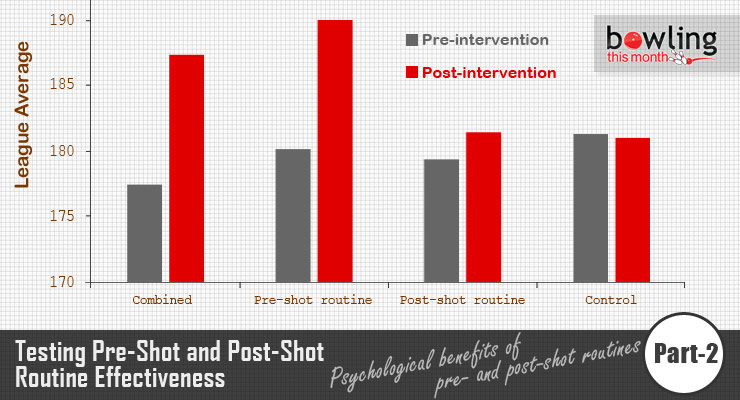Article Contents
- 1. Beneficial categories of both routines
- 1.1. Performance improvement
- 1.2. Attentional and emotional control
- 1.3. Self-awareness boon
- 1.4. Self-confidence boost
- 1.5. Motivation
- 1.6. Additional benefits of the pre-shot routine
- 2. Practical implications
- 3. Conclusions
- 4. Acknowledgement
Note: This article is only available to Bowling This Month subscribers.
Last time in BTM, I discussed a study that investigated pre- and post-shot routines. The results indicated that using pre-shot routines is beneficial to both accuracy and average.
Participants who used a pre-shot routine (alone or combined with a post-shot routine) were more accurate after the routine training than before, which also equated to, on average, a ten pin increase in league scores. The post-shot routine and control group (i.e., did not receive training of any kind) did not improve in accuracy after the training period, although the post-shot routine group improved their league scores by a few pins while the control group did not improve at all.
I concluded that different routines could help improve league averages if practiced over a four week period and that developing a consistent pre-shot routine will lead to a substantial increase.
After the study was conducted, the participants were asked about whether the pre- or post-shot routine interventions were beneficial to their accuracy and scores. This article will explain the interview results for the training groups, specifically focused on the outcomes of the pre- and post-shot routines together and the additional benefits of the pre-shot routine group.
It should be noted that these results are a combination of the pre-shot routine, post-shot routine, and combined routine groups, which made up a total of 22 participants. This equated to approximately 200 pages of interview text to analyze. I provide a general overview of the ...
Already a premium member? Click here to log in.


